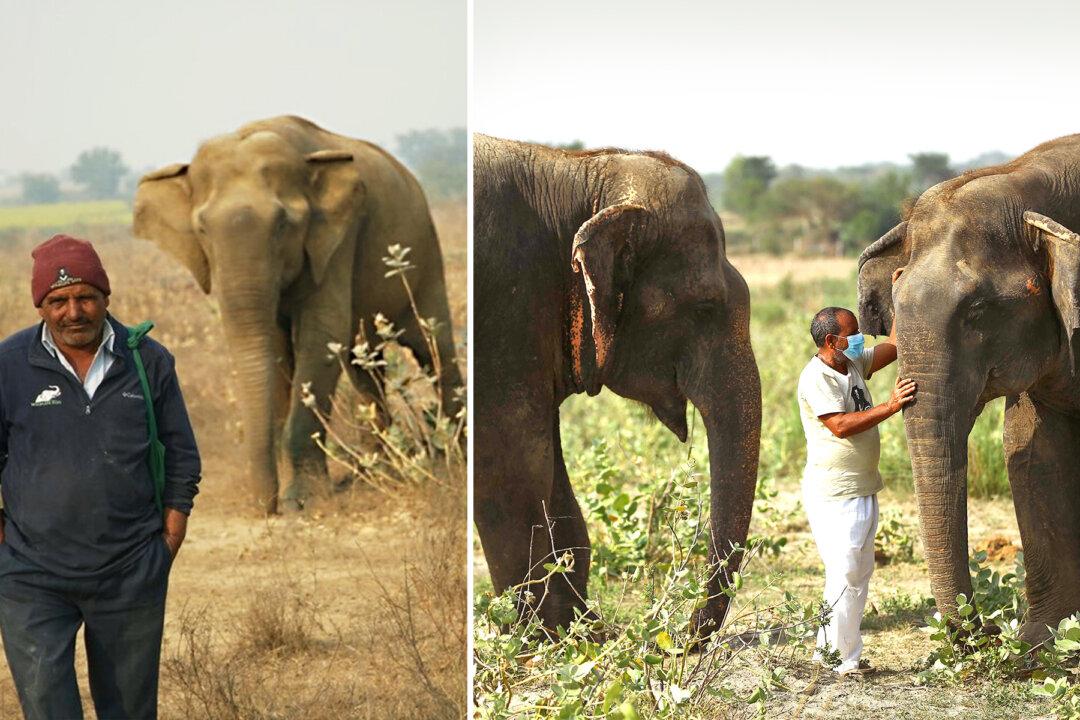The relationship between an elephant and their caregiver can make the difference between surviving and thriving.
Babu Lal of Wildlife SOS Elephant Conservation & Care Center in Mathura, a city of northern India, has amassed 11 years’ experience working with elephants. He knows firsthand what it takes to give rescued elephants the love they deserve and the care they need to thrive.





